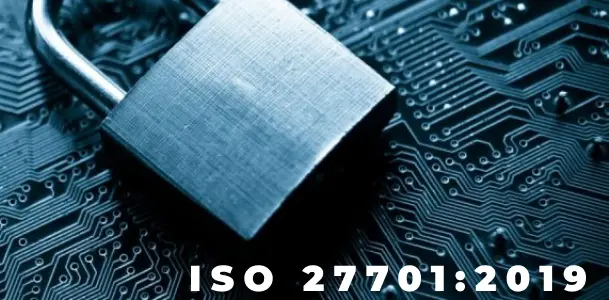INDIA
HIPAA CERTIFICATION IN INDIA
In India, the healthcare industry is a dynamic and rapidly developing sector, delivering a wide range of healthcare services and advanced technologies. With a population of 1.3 billion, India presents unique challenges and opportunities in the healthcare landscape. The sector encompasses a combination of public and private healthcare providers, clinics, hospitals, and pharmaceutical companies. India is renowned for its medical tourism, which attracts global patients seeking affordable treatments and procedures. As the industry progresses, there is a growing need for HIPAA certification in India. HIPAA certification ensures compliance with stringent data protection and privacy standards, reinforcing patient confidentiality and security. By achieving HIPAA certification, healthcare organizations in India can gain several benefits, including enhanced data security practices, improved patient trust, regulatory compliance, and a competitive edge in the healthcare market. As India’s healthcare industry advances with telemedicine, digital health solutions, and health information technology, HIPAA certification becomes more crucial to address challenges such as data privacy concerns, ensure excellent information exchange, and strengthen India’s position as a leading global healthcare destination.
CERTIFICATION AND AUDITING SERVICES BY CERTPRO FOR HIPAA IN INDIA
CertPro specializes in providing Certification and Auditing Services for HIPAA compliance in India, recognizing the importance of obtaining HIPAA certification and bringing advantages to healthcare organizations. We offer comprehensive assistance to businesses in the healthcare sector seeking HIPAA certification, guiding them throughout the certification process. A team of experts collaborates closely with your organization to develop and implement a customized framework that addresses your specific requirements and aligns with HIPAA standards. Trust CertPro’s expertise and experience to navigate the complexities of HIPAA certification, establish robust data protection practices, and bolster your organization’s security posture in the healthcare industry.
WHY CHOOSE CERTPRO FOR HIPAA CERTIFICATION AND AUDITING?
CertPro, a trusted and reliable partner, offers exceptional HIPAA certification and auditing services. With our extensive experience in data security and compliance, we possess a deep understanding of the complexities of meeting HIPAA standards. Here are several compelling reasons why CertPro is the ideal choice to fulfill your HIPAA certification and auditing requirements in India:
| Factors | CertPro Advantage |
| Time to Certification | 4x faster than traditional approaches |
| Price | Competitive rates with flexible options |
| Process | Streamlined and efficient methodology |
| Expertise | 10+ years of industry experience |
Related Links
SOC 2 in India
ISO 27701 in India
GDPR in India
ISO 27018 in India
HIPAA in India
CCPA in India
PIPEDA in India
ISO 17025 in India
ISO 13485 in India
CE Mark in India
GDP in India
GLP in India
ISO 9001 in India
ISO 14001 in India
ISO 45001 in India
ISO 22000 in India
HACCP in India
ISO 22301 in India
ISO 21001 in India
ISO 41001 in India
ISO 20000-1 in India
CERTPRO’S COST-EFFECTIVE APPROACH FOR HIPAA CERTIFICATION IN INDIA
When pursuing HIPAA certification in India, factors affecting the cost are a crucial consideration in planning and budgeting. At CertPro, we understand the significance of cost-effectiveness and are committed to providing customized and affordable solutions to meet your HIPAA certification requirements. Here is an overview of our cost-effective approach to HIPAA certification in India.
| No. of employees | Timeline | Cost (approx.) |
| 1 – 25 | 4 weeks | 2500 USD |
| 25-100 | 6 weeks | 3500 USD |
| 100-250 | 6-8 weeks | 5000 USD |
| 250 plus | 8 weeks | Custom plans |
WHAT IS HIPAA?
HIPAA, which stands for the Health Insurance Portability and Accountability Act of 1996, encompasses a set of regulatory standards that set guidelines for the lawful use and disclosure of protected health information (PHI). The Department of Health and Human Services (HHS) regulates HIPAA compliance, even as the Office for Civil Rights (OCR) enforces its provisions. The OCR ensures medical HIPAA compliance by imparting ordinary guidance on rising healthcare problems and engaging in investigations into not unusual HIPAA violations.
HIPAA compliance is not a static idea but a dynamic and ongoing procedure. It forms an integral part of the organizational culture within healthcare entities. Adhering to HIPAA rules is essential for healthcare groups because it safeguards the privacy, safety, and integrity of covered fitness facts. By implementing HIPAA compliance measures, healthcare entities exhibit their dedication to protecting patient Information and retaining the consideration of people searching for healthcare offerings.
According to HIPAA regulations, there are two different types of organizations that can receive HIPAA certification in India:
- Covered Entities: Healthcare organizations that collect, create, or electronically transmit protected health information (PHI). It includes healthcare providers, health insurance providers, and healthcare clearinghouses operating within India.
- Business Associates: Companies that cover entities that they hire and who, in the course of their work, come into contact with protected health information (PHI). They can include service providers handling, transmitting, or processing PHI. Examples of business associates affected by HIPAA rules in India include billing companies, consultants, practice management firms, EHR platforms, IT providers, MSPs, faxing and shredding companies, physical and cloud storage providers, accountants, attorneys, email hosting services, and more. Compliance with HIPAA regulations is essential for these business associates to ensure the privacy and security of PHI.
For HIPAA certification in India, both covered entities and business associates must adhere to the regulations outlined by HIPAA to ensure the privacy and security of PHI. Compliance with HIPAA guidelines is essential for organizations to protect patient information and maintain regulatory compliance.
HIPAA DOMAINS
HIPAA compliance entails adhering to four major sets of regulations, which follow established frameworks such as SOC and ISO. The HIPAA Privacy Rule governs the protection and disclosure of medical records; the HIPAA Security Rule governs electronic health information security; the HIPAA Enforcement Rule authorizes regulatory enforcement; and the HIPAA Breach Notification Rule governs the reporting of breaches of unsecured health data.
- HIPAA Privacy Rule: This rule governs the privacy of people’s medical records and personal health information, defining how this information can be used and released.
- HIPAA Security Rule: Protects electronic protected health information (ePHI) by requiring the deployment of security measures to assure confidentiality, integrity, and availability.
- HIPAA Enforcement Rule: Gives the United States Department of Health and Human Services (HHS) the authority to enforce HIPAA laws by creating procedures for investigations and penalties for noncompliance.
- HIPAA Breach Notification Rule: Describes the obligations for covered businesses and business associates to notify breaches of unsecured ePHI, ensuring that affected individuals, the HHS, and, in some situations, the media are properly informed.
These standards serve as the cornerstone for HIPAA compliance, offering a comprehensive framework for protecting the privacy and security of people’s health information. HIPAA compliance, like established standards like SOC and ISO, is critical for companies managing sensitive health data to ensure regulatory conformance and patient information security.
WHY DO WE NEED HIPAA CERTIFICATION?
If you’re wondering about the importance of obtaining HIPAA certification in India despite its inability to guarantee perpetual compliance or immunity from new rule updates, here’s why it matters:
- Adhering to privacy guidelines and implementing technical, administrative, and physical safeguards required by the HIPAA Security Rule, obtaining certification reduces the risk of data breaches and HIPAA violations. It, in turn, minimizes patient grievances and investigations by the Office for Civil Rights (OCR).
- HIPAA compliance certification affirms that an organization has taken reasonable care to comply with the HIPAA Rules in the event of a violation.
- For business associates and covered entities, HIPAA certification demonstrates an intent to comply, making it mandatory and strengthening their reputation.
- Furthermore, HIPAA certification enhances an organization’s appeal to clients and streamlines the due diligence process before entering into a business associate agreement between a covered entity and a business associate.
WHO REQUIRES HIPAA CERTIFICATION IN INDIA?
It is now essential for covered entities and their affiliated companies that handle protected health information (PHI) in the US to ensure HIPAA compliance in India. Among the covered entities are:
- Healthcare providers: Including people or institutions that provide health-related or medical services, like doctors, nurses, clinics, hospitals, and pharmacies.
- Health plans: Insurance companies, HMOs, and other institutions responsible for providing or financing healthcare services are included.
- Healthcare clearinghouses: Entities engaged in processing nonstandard health information into a standardized format, such as billing details.
Individuals or businesses providing services on behalf of covered entities that require the use or disclosure of PHI are referred to as business associates. Third-party billing companies, IT service providers, and legal experts are a few examples.
Maintaining HIPAA compliance in India is crucial for protecting patient privacy and avoiding potential penalties for noncompliance. Covered businesses and their associates must take proactive steps to guarantee continuing HIPAA compliance and be informed of any changes or updates to the regulations.
TYPES OF HIPAA CERTIFICATION IN INDIA
1. Training on Privacy and Security Awareness: All Departments of Health and Human Resources are required by law to implement this software in order to comply with HIPAA certification requirements. This annual course covers cybersecurity awareness and role-based information security training designed for managers, IT administrators, and executives. Both employees and contractors attend.
2. Certified HIPAA Professional (CHP): CHP is a foundational level-1 certification program that covers the background of the law and basic compliance requirements without requiring any prior education. Perfect for staff members in healthcare organizations who have access to private health information, this certification guarantees a basic comprehension of HIPAA rules.
3. Certified HIPAA Administrator (CHA): Specifically for nurses and hospital administrators, CHA offers in-depth education for people who are directly involved in providing healthcare services. This certification, which focuses on data privacy compliance, explores HIPAA laws that impact patients and sensitive medical data and covers routine patient-related obligations.
4. Certified HIPAA Security Specialist (CHSS): The CHSS qualification offers a more in-depth technical analysis of HIPAA certification compliance in India. It examines security guidelines and procedures, focusing on how they apply to the handling and archiving of electronic health records. For personnel handling the technical nuances of HIPAA security rules, this certification is essential.
HOW TO GET HIPAA CERTIFICATION IN INDIA?
When considering how to apply for HIPAA certification in India, it’s essential to understand that the Department of Health and Human Services (HHS) does not officially recognize such certifications. However, the HHS acknowledges the value of third-party HIPAA verification tools. Therefore, obtaining HIPAA certification in India boils down to implementing a robust compliance program and engaging a reputable third party to verify and validate its effectiveness in meeting HHS standards.
STEPS FOR OBTAINING HIPAA CERTIFICATION
Here’s a step-by-step guide to help you on your journey toward achieving HIPAA compliance certification:
Step 1: Recognize the HIPAA requirements: Ensure your team’s familiarity with HIPAA rules. Understand the prerequisites and responsibilities for safeguarding PHI by reviewing the Privacy Rule, Security Rule, and other relevant guidelines.
Step 2: Conduct a HIPAA risk assessment: Identify gaps in PHI management through a comprehensive risk assessment. Achieve compliance by utilizing assessment results to pinpoint areas requiring improvements.
Step 3: Construct HIPAA policies and practices: Develop and implement policies addressing PHI handling, security, and privacy, in line with HIPAA rules and tailored to specific activities.
Step 4: Implementing physical and technical safeguards: Implement necessary physical and technological safeguards, including access controls, secure data storage, and encryption, to protect against unauthorized access and breaches.
Step 5: Regular monitoring: Continuously monitor your organization’s compliance efforts and regularly update policies and procedures to align with evolving legal changes.
Step 6: Maintain HIPAA Documentation: Maintain thorough records of HIPAA compliance efforts, risk assessments, training sessions, and incident response plans. Comprehensive documentation showcases a strong commitment to compliance.
Step 7: Appointing an HIPAA Compliance officer: Assign a dedicated HIPAA Compliance Officer to supervise regulation adherence, guaranteeing data security and privacy measures are upheld.
By following these steps, you can work towards achieving HIPAA certification in India and demonstrate your commitment to protecting patient privacy and maintaining compliance with HIPAA regulations.

REQUIREMENTS FOR HIPAA CERTIFICATION IN INDIA
To achieve HIPAA certification in India, organizations must meet the following requirements:
- Privacy Rule: Enforce the proper use and disclosure of PHI by covered entities and business associates, including obtaining individual consent, implementing safeguards, and granting individuals the right to access and request corrections to their PHI.
- Security Rule: Implement administrative, physical, and technical safeguards to protect ePHI from unauthorized access, use, or disclosure.
- Breach Notification: Follow specific procedures in the event of a data breach involving PHI, including notifying affected individuals and the Department of Health and Human Services effectively.
- Administrative Safeguards: Develop written policies and procedures for PHI security and privacy, designate a privacy and security officer, provide workforce training on HIPAA regulations, and conduct risk analysis and management.
- Physical Safeguards: Control access to facilities where PHI is stored, restrict entry to authorized personnel, employ security measures such as security cameras, and implement proper disposal procedures for devices or media containing PHI.
- Technical Safeguards: Protect ePHI through access controls such as unique user IDs and passwords; encrypt data at rest and in transit; perform regular security updates and software patching; and monitor network activity to detect unauthorized access or data breaches.
- Business Associate Agreements: Establish agreements with business associates, ensuring their adherence to HIPAA regulations.
By meeting these requirements for HIPAA certification in India, organizations can effectively safeguard patient privacy, maintain patient and client trust, and ensure compliance with HIPAA regulations.

HIPAA CERTIFICATION COST IN INDIA
When considering the cost of HIPAA certification in India, it is crucial to account for various factors that impact the budget. The organization’s nature, size, and complexity determine compliance requirements, while considering the current status quo helps gauge the effort required for certification. Evaluating the organization’s IT infrastructure is essential, as it may require upgrades or enhancements to meet HIPAA standards. Training and awareness levels of staff members must be considered, along with the decision of whether to rely on in-house resources, third-party vendors, or automation tools for compliance. Control monitoring is another aspect that may influence the overall cost. Ultimately, the HIPAA certification cost in India will vary for small and more extensive enterprises, depending on these factors.
BENEFITS OF HIPAA CERTIFICATION
HIPAA certification in India offers numerous benefits that contribute to the enhancement of the overall healthcare ecosystem, including:
- Avoiding Breach Notification Costs: A data breach involving PHI can incur significant financial costs and damage to reputation. HIPAA compliance can help prevent or effectively manage breaches, potentially reducing expenses related to breach notifications and recovery efforts.
- Data security: HIPAA compliance empowers businesses to implement robust data security measures, safeguarding sensitive patient data from hacking, breaches, and potential threats. This enhanced security significantly reduces the risk of data breaches, preserving the organization’s reputation.
- Legal Compliance: Adhering to HIPAA regulations ensures that businesses fulfill their legal obligations under federal law. By adhering to HIPAA standards, organizations can steer clear of potential fines, penalties, and legal consequences associated with non-compliance.
- Better Data Management: HIPAA compliance within healthcare businesses fosters the adoption of improved data management practices. This encompasses regular audits, risk analyses, and the establishment of policies and procedures to streamline efficient PHI management.
- Better Healthcare results: HIPAA compliance contributes to enhanced healthcare outcomes by ensuring the confidentiality and privacy of patient information. Patients are more likely to share accurate and comprehensive health information with clinicians, leading to improved treatment strategies and overall patient care.

SAFEGUARD PATIENT DATA AND ACHIEVE HIPAA COMPLIANCE IN INDIA WITH CERTPRO
CertPro assists your business in achieving HIPAA compliance in India through its comprehensive auditing and consulting services. Our experienced professionals will assess your organization’s policies, procedures, and technical measures to ensure compliance with HIPAA regulations. CertPro can help develop and implement safeguards to protect patient data, conduct risk assessments, and assist with HIPAA compliance documentation. By partnering with CertPro, your business can enhance its ability to safeguard patient privacy and security, demonstrate HIPAA compliance to stakeholders, and mitigate the risk of penalties and legal issues. CertPro’s services will help you navigate the complexities of HIPAA, foster trust with patients, and ensure compliance with the regulatory requirements in India.
FAQ
IS HIPAA CERTIFICATION MANDATORY IN INDIA?
While HIPAA compliance is mandatory for covered entities and business associates in the United States, there is no specific legal requirement for HIPAA certification in India. Adhering to HIPAA regulations strongly recommends protecting patient privacy and maintaining industry best practices.
HOW LONG DOES IT TAKE TO ACHIEVE HIPAA CERTIFICATION IN INDIA?
The timeline for achieving HIPAA certification in India varies depending on factors such as the organization’s current state of compliance, size, complexity, and available resources. It typically involves conducting risk assessments, implementing policies and safeguards, staff training, and ongoing monitoring. The completion of the process may require several months.
WHAT HAPPENS IF AN ORGANIZATION FAILS TO COMPLY WITH HIPAA REGULATIONS IN INDIA?
Failure to comply with HIPAA regulations can lead to penalties, fines, legal consequences, damage to reputation, and loss of patient trust. Organizations must prioritize HIPAA compliance to mitigate these risks and protect patient health information.
CAN OUTSOURCING HIPAA COMPLIANCE BE BENEFICIAL FOR ORGANIZATIONS IN INDIA?
Yes, outsourcing HIPAA compliance to experienced and knowledgeable professionals can be valuable for organizations in India. Compliance experts can provide guidance, conduct assessments, and assist in implementing the necessary measures, saving time and resources for the organization while ensuring proper compliance with HIPAA regulations.
CAN HIPAA CERTIFICATION IN INDIA BE TRANSFERRED OR RECOGNIZED INTERNATIONALLY?
HIPAA certification in India is specific to compliance with Indian healthcare regulations. However, the principles and standards outlined by HIPAA are widely recognized globally. Compliance with HIPAA regulations can demonstrate an organization’s commitment to protecting patient information, which may be valuable when working with international partners or handling data from other countries.
HITECH ACT AND ITS IMPACT ON MODERN HEALTHCARE
In 2009, the Health Information Technology for Economic and Clinical Health or HITECH Act was signed to transform the American healthcare industry. The laws worked as a forward-thinking process of changing patient services. In this regard, the Patient Protection and...
BEST PRACTICES FOR DATA PROTECTION IN THE HEALTHCARE INDUSTRIES
In the healthcare sector, safeguarding sensitive information about patients is extremely important. Patient data includes personal details, medical histories, and treatment plans. Therefore, it must be protected and should be confidential. Thus, breaches not only...
HIPAA CONSULTANTS: WE KNOW HOW TO SECURE YOUR INFORMATION
Navigating HIPAA compliance can be complex; therefore, organizations seek advice from HIPAA consultants. These HIPAA experts have specific knowledge. They can help firms to understand the problematic standards of the Healthcare Privacy Act. In 1996, HIPAA was created....












